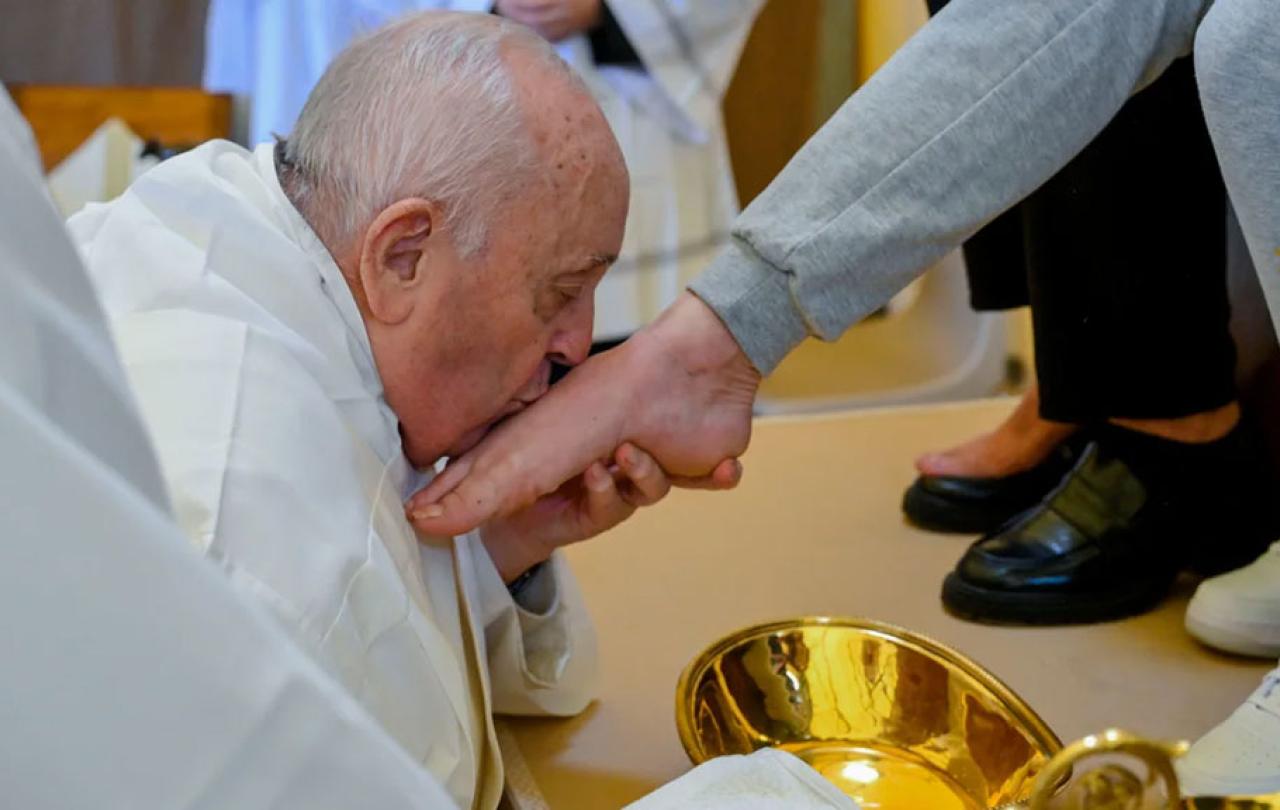
The Holy Father, Pope Francis, died this morning, at the age of 88. Fittingly, he went to life after witnessing one last Easter fire. He had seemingly half-recovered from a month of hospitalisation due to pneumonia, and even blessed the crowds gathered at St Peter’s Square yesterday from the balcony. May he rest in peace.
He was born Jorge Mario Bergoglio in Buenos Aires, in 1936, to two Italian immigrants seeking a life away from Mussolini’s fascist rule. Sadly, this would not spare their son from dictatorships - in the 1970s, Argentina’s government was seized by a military junta, violently opposed to socialism.
But this bit of biography is vital for understanding the nuanced figure of Pope Francis.
In 1958 he entered the Society of Jesus, a religious order founded with half an eye on responding to the Protestant Reformation. Their origins in apologetics and counter-dialogue have given the ‘Jesuits’ a reputation for softness on doctrine. Choosing the papal name ‘Francis’ when he was elected on 13th March 2013, some saw an indication that this Pope was a reformer.
Many painted Francis with this brush during his pontificate, and with reasonable cause. In 2021, the Pope restricted the use of the Traditional Latin Mass, a move which gravely offended communities who regretted the move to vernacular language services in the 1960s. In 2023, he confirmed that priests may bless people in “irregular unions”, such as same-sex and remarried couples, though not as a blessing of the union. He has been seen as a wind of change - open-hearted, popular, and genuinely humble in his servant leadership.
But during his time as the head of the Argentinian Jesuits, the young Fr Bergoglio was outwardly a conservative, opposed to the left-aligned Liberation Theology that swept through the Latin American conferences and seminaries of the era. As Pope, he could be as gruff and traditional as they come. His answer to an interviewer's question about whether women can be admitted to Holy Orders in 2024 began with a blunt “no”. He found himself in hot water when using negative slur for gay people in a frank talk about the atmosphere of some Catholic seminaries.
Too liberal for the trads, and too traditional for the libs. Who was Pope Francis? What I think he learnt from the military takeover of the 1970s was the cost of idealism, at either end of the political spectrum. He was, it seems to me, a pragmatist. Not an academic like his predecessor, Pope Benedict XVI, and, unlike Pope St John Paul II, there was no clear-cut political object in the form of the dissolving USSR. Francis was Pope within a far more complex world, increasingly lacking a clear moral bedrock, and finding it increasingly hard to respond to massive technological and social change.
Francis will be known for his attempts to strike balances in all of it - to plead for change, but stay closed elsewhere. He was loved for all the same reasons he was ardently criticised. Such is our polarised time. As a Catholic, I happily do not have to worry all that much about whether his successor will follow, or depart, from his mould. With a conclave imminent, it is the Holy Spirit’s work now.





